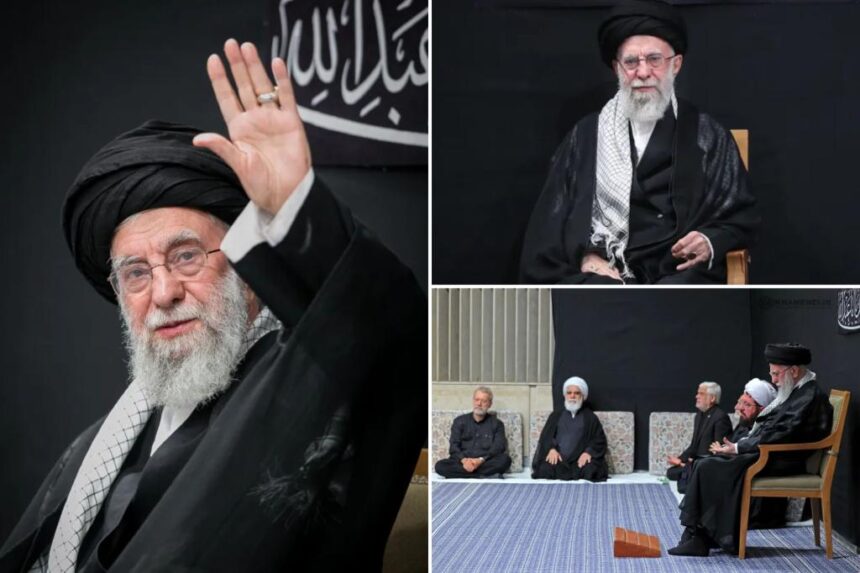Iran’s Supreme Leader Ayatollah Ali Khamenei made a public appearance on Saturday, marking his first appearance since the 12-day war between Israel and Iran began. He attended a mourning ceremony on the eve of Ashoura, a significant event in the Shiite calendar.
Khamenei’s absence during the initial days of the conflict raised speculation that he had been in seclusion in a bunker, although this was not confirmed by state media. State TV in Iran showed him acknowledging the chanting crowd as he entered a mosque in Tehran, where he sat alongside other officials. The event was heavily guarded, as is typical for such gatherings.
Following the US involvement in the war, with airstrikes on Iranian nuclear sites, US President Donald Trump issued warnings to Khamenei via social media. Despite the tension, Trump stated that the US had no immediate plans to harm the Iranian leader. Khamenei later made a public statement, boasting about Iran’s retaliatory actions against the US.
During the conflict, Iran suffered casualties and significant damage to its nuclear facilities. The country denied access to UN nuclear inspectors and suspended cooperation with the International Atomic Energy Agency. This move further complicates negotiations with the US regarding Iran’s nuclear program.
Israel, fearing Iran’s nuclear ambitions, targeted key military and nuclear facilities during the war. In response, Iran launched ballistic missiles at Israel, resulting in casualties and damage.
The ceremony hosted by Khamenei was a tribute to the martyrdom of Hussein, the Prophet Muhammad’s grandson. This event holds great significance for Shiites, who make up a portion of the Muslim population. Hussein’s death at Karbala played a pivotal role in shaping Shiite identity.
Reports of internet disruptions in Iran were also noted during the conflict. NetBlocks, an internet monitor, reported a major disruption to internet connectivity in the country. This incident followed previous instances of telecom shutdowns during the war.
Overall, the conflict between Iran and Israel highlighted the ongoing tensions in the region. The aftermath of the war raises questions about the future of Iran’s nuclear program and the potential for further diplomatic negotiations.








